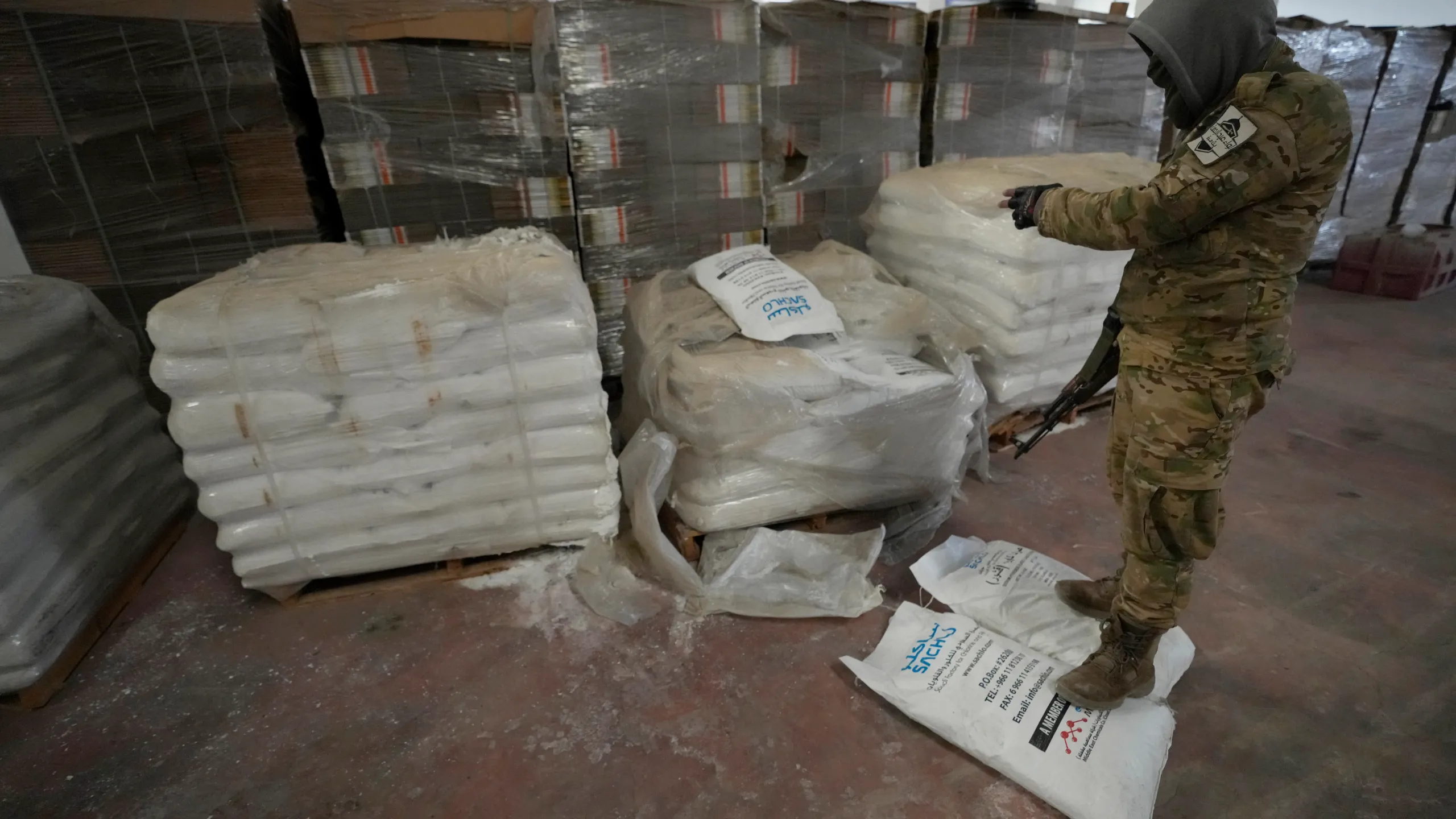In a secluded part of Damascus, a long-abandoned potato chip factory has become a haunting symbol of the Assad regime’s hidden activities. Upon investigating the site, a CBS News team uncovered large quantities of hydrochloric acid and acetic acid, chemicals necessary for the production of Captagon, a popular and highly addictive drug. This discovery is a chilling reminder of how the Assad regime relied on the illicit drug trade to fund its operations, impacting not just Syria, but much of the Middle East.
After Bashar al-Assad fled Syria on December 8, 2023, control of the country fell to the rebel group Hayat Tahrir al-Sham (HTS). Ahmed Abu Yakin, a member of HTS, explained that the drug stash was uncovered just days after their takeover. The Captagon pills, hidden in stacks of household volt regulator kits, were ready for shipment. Known as “poor man’s cocaine,” Captagon is a stimulant that has been devastating to the youth of Syria, a generation left vulnerable by the regime’s greed and disregard for their well-being.

Captagon Trade Uncovered: Assad’s Hidden Operation Exposed After Syria’s Regime Collapse
The financial scope of the Captagon trade is staggering. Experts estimate the Assad regime earned up to $5 billion annually from manufacturing and trafficking the drug, a sum that dwarfed Syria’s official budget. Captagon’s low production costs and high selling price—up to $20 per tablet—made it a critical financial lifeline for a regime that was otherwise bankrupt. The haul discovered at the abandoned factory could be worth tens of millions of dollars, a testament to the scale of the operation.
Syria’s role as a major supplier of Captagon has drawn international attention, with neighboring countries and global powers condemning the Assad regime. In March 2023, the U.S. Treasury Department imposed sanctions on several key figures, including Assad’s cousins, for their involvement in the Captagon trade. Andrea Gacki, then-director of the Treasury’s Office of Foreign Assets Control, noted that Syria had become a world leader in the production of Captagon, much of which was trafficked through Lebanon. The U.S. and its allies have vowed to hold accountable those who profited from the illicit drug trade that helped sustain Assad’s brutal regime.
With the fall of Assad’s government, HTS has vowed to rid Syria of Captagon and dismantle the drug trade entirely. Yakin emphasized that Captagon has no place in Syria’s future, declaring its commitment to destroying the entire network tied to the drug and the criminal regime that profited from it. This determination to eliminate Captagon reflects the hope for a future where Syria can rebuild, free from the toxic influence of both the drug trade and the corrupt leadership that fueled it.
